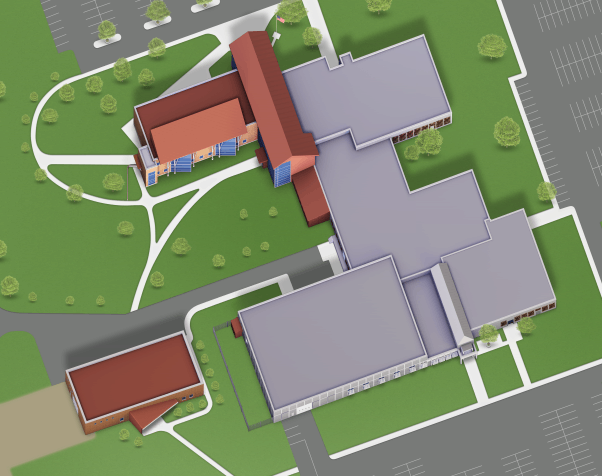Student Learning Assessment at GFC MSU
Student learning is assessed at the course, program, and institutional levels. For many courses, course-level learning outcomes are determined by the Montana University System's Common Course Numbering (CCN) requirements.
Statement of Institutional Learning Assessment
The Role of Institutional Assessment in Mission Fulfillment:
Assessment is the systematic collection of information about student learning to inform decisions about how to improve learning and academic programs. Assessment of institutional learning outcomes does not focus on individual instructors or individual courses: the purpose of institutional student learning assessment is to obtain a global perspective of student ability in order to determine where adjustments and improvements need to be made throughout the institution’s academic divisions.
The College Learning Outcomes (CLOs) are statements of the general knowledge, skills, and habits of mind that all students at Great Falls College MSU should be able to demonstrate upon completion of their degree programs. The College Learning Outcomes (CLOs) support the college’s mission by encouraging high quality learning activities within programs, enhancing the professional and personal lives of students.
While service to the community is an important value held by GFC MSU, service-oriented activities and outcomes are not explicitly reflected in the CLOs. Individual programs, as well as co-curricular areas, offer and require a variety of service opportunities, which are better assessed at those levels. This provides more flexibility at the program level and ensures authentic alignment to programmatic outcomes and expectations that require students to demonstrate how they contribute to a community.
Alignment:
The College Learning Outcomes are aligned to programmatic and General Education outcomes. During the course of their degree or certificate programs, students will participate in learning activities assessing the College Learning Outcomes. Programmatic curriculum maps identify how the CLOs will be addressed within programs.
The CLOs will not be reflected in all courses. Instead, the focus is on demonstration of the CLOs holistically during a program of study. Individual programs will determine the most appropriate points during students’ learning experiences to align to and demonstrate CLOs.
CLO Definitions and Framing Language:
Each College Learning Outcome is presented through an institutional definition, an outcome statement, and examples of learning experiences that might assess student learning in that area. The learning experiences listed for each CLO are not intended to be prescriptive, nor are they an exhaustive list of possible learning opportunities. They are provided only to offer context for the definitions and outcome statements. Faculty are encouraged to create learning experiences that are best suited to their program requirements and students’ needs.
College Learning Outcomes
The Outcomes Assessment Committee revised the College Learning Outcomes during the fall 2019 semester after extensive faculty discussion and comment. The College Learning Outcomes are Critical Thinking, Communication, and Professionalism.
Critical Thinking
Definition: Critical thinking is a habit of mind characterized by the comprehensive exploration of issues, ideas, artifacts, data, and events before accepting or formulating a conclusion.
Outcome: Students will think critically by evaluating information analytically, using ideas and data in creative and innovative ways.
Learning experiences that assess critical thinking might ask students to:
- Distinguish between credible and non-credible sources of information; assess for validity and relevancy and document sources appropriately.
- Analyze text, data, or issues to reach a new or complex decision.
- Evaluate contemporary technology use, including the appropriate application of various mediums or platforms.
- Solve problems by designing, evaluating and implementing a strategy to answer an open-ended question or achieve a desired goal.
- Gather and analyze information while executing ethical principles of the discipline.
Communication
Definition: Communication is the effective, active expression and exchange of ideas through listening, speaking, reading, writing, or other modes of verbal or non-verbal or artistic expression.
Outcome: Students will communicate effectively, expressing ideas and information in the mode most appropriate to the audience and situation.
Learning experiences that assess communication might ask students to:
- Organize and present ideas and information, whether through writing, speaking, signing, or another method appropriate to the skills being mastered.
- Demonstrate the ability to understand and respond to both verbal and non-verbal messages.
- Make use of conventions of communication and seek feedback for revision and effectiveness.
- Select and use appropriate technology to communicate effectively for the intended audience and situation.
- Agree or disagree with others while maintaining a respectful and dignified conversation.
Professionalism
Definition: Professionalism is the ability to demonstrate appropriate work-ethic behaviors through personal conduct and effective teamwork.
Outcome: Students will demonstrate professionalism in and out of the classroom, meeting current organizational or industry standards for conduct, appearance, and teamwork.
Learning experiences that demonstrate professionalism might ask students to:
- Demonstrate the ability to work individually and as a productive member of a team, whether in a classroom or professional setting. This includes being punctual, meeting deadlines, completing assigned tasks, solving problems, and interacting with diverse populations.
- Meet industry and professional standards for appearance and conduct.
- Meet industry and professional standards for service, including community service.
Updated 12/2/19

 Welcome to Great Falls College MSU
Welcome to Great Falls College MSU


